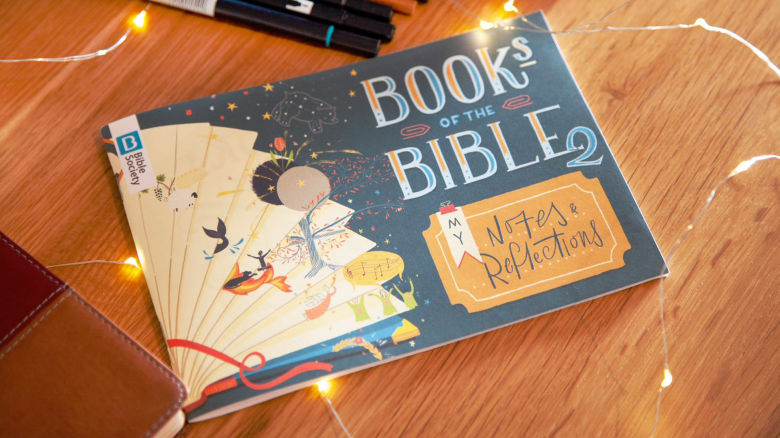The book of Amos is largely a collection of prophecies delivered by the prophet Amos to the northern kingdom of Israel and its king in the eighth century BC. In addition to the prophecies there are a few fragments of psalms and a description of a particular encounter between Amos, Amaziah the priest and Jeroboam the king. While most of Amos’ prophecies are in the form of sermons, there are also a few striking visions as well. In his prophecies Amos’ great concern is the way in which the rich were oppressing the poor while worshipping God and believing that their sacrifices were all God wanted.
21I hate, I despise your festivals, and I take no delight in your solemn assemblies. 22Even though you offer me your burnt offerings and grain offerings, I will not accept them; and the offerings of well-being of your fatted animals I will not look upon. 23Take away from me the noise of your songs; I will not listen to the melody of your harps. 24But let justice roll down like waters, and righteousness like an ever-flowing stream. (Amos 5.21–24)
The time is surely coming, says the Lord GOD, when I will send a famine on the land; not a famine of bread, or a thirst for water, but of hearing the words of the LORD. (Amos 8.11)
13The time is surely coming, says the LORD, when the one who ploughs shall overtake the one who reaps, and the treader of grapes the one who sows the seed; the mountains shall drip sweet wine, and all the hills shall flow with it. 14I will restore the fortunes of my people Israel, and they shall rebuild the ruined cities and inhabit them; they shall plant vineyards and drink their wine, and they shall make gardens and eat their fruit. (Amos 9.13–14)
As with many of the prophetic books, God’s anger can feel hard to deal with. It can help to remember that this is a last-ditch plea to get people to listen and change their ways.
These are thought to be the words of Amos, though they may have been collected and written down by someone else.
In 7.14 Amos denies being a prophet and claims to be just a shepherd and a dresser of sycamore trees (sycamore trees are otherwise known as mulberry figs; a dresser of sycamore trees punctured the fruit before harvesting to help it ripen). He was not paid to be a prophet or otherwise supported as one, but was sent by God with prophetic messages. This probably happened around 750 BC. The time in which he prophesied was one of peace and prosperity, in which the rich had become so complacent that they thought simply sacrificing to God was all that was required of them. Amos’ message was simple – God requires justice as well as worship.
Most of the eight century BC had been a time of great peace and prosperity. By the end of it, however, it is thought that the prosperity was beginning tail off. This might explain the problem of oppression that we see in the book of Amos. When there is less wealth than there has been, it is often the case that the rich hold on to their possessions at the expense of the poor.
The book of Amos suggests that the rich were feeling complacent and the poor desperate.
Isaiah, Hosea, Micah
Prophecy. Amos is a collection of Amos’ prophecies, which also contains a biographical account of conflict between Amos and Jeroboam, the king of Israel at the time, and a few fragments of psalms.
1.1–2 Opening introduction
1.3–2.16 Judgements against nations surrounding Israel
3.1–6.14 Judgements against Israel
7.1–9.10 Five visions of judgement including a confrontation between Amos and Jeroboam
9.11–15 Hope for the future
There will be lots of names you will not know; don’t worry if you can’t place them all. The key ones are given below.
Carmel, Damascus, Aram, Edom, Bethel, Ashdod, Ashkelon, Bashan, Beer-sheba, Dan, Ekron, Gath, Gaza, Gilgal. Gomorrah, Jerusalem, Judah, Moab, Mount Carmel, Mount Zion, Samaria, Sodom, Northern Kingdom, Southern Kingdom, Tekoa, Teman, Tyre, Zion
Amorite, Samaria, Ammonites, Arameans, Isaac, Israel, Nazirites, Philistines
Plumb line, Altar, Day of the Lord, priest, Sheol, wadi
Amos prophesied not just against Israel but against the many different nations that surrounded Israel (including Judah). Look out for the variety of judgments pronounced and reflect on what this says about what was happening in that region at the time.
The book of Amos also contains a number of visions. Reflect on these as you read and see how effective you think they are as a means of communication.
Amos’ particular concern was the belief that worshipping God was all that people needed to do to be in relationship with him. Look out for the linking of worship with justice in what Amos said.
Amos’ particular concern was how the rich treated the poor. If we were to apply what Amos said to the twenty-first century, what practices in particular do you think he might criticise?

Here are 8 handy tips to get your book club up and running.

Here are some ideas to get you started.

7 top tips for reading the Bible
The Bible can seem overwhelming, boring and difficult, but a few basic tips can help you understand it more. Try these…
Books of the Bible journal: 2nd Edition
Journey through the Bible, one book at a time, with the 2nd edition of our Books of the Bible journal.
